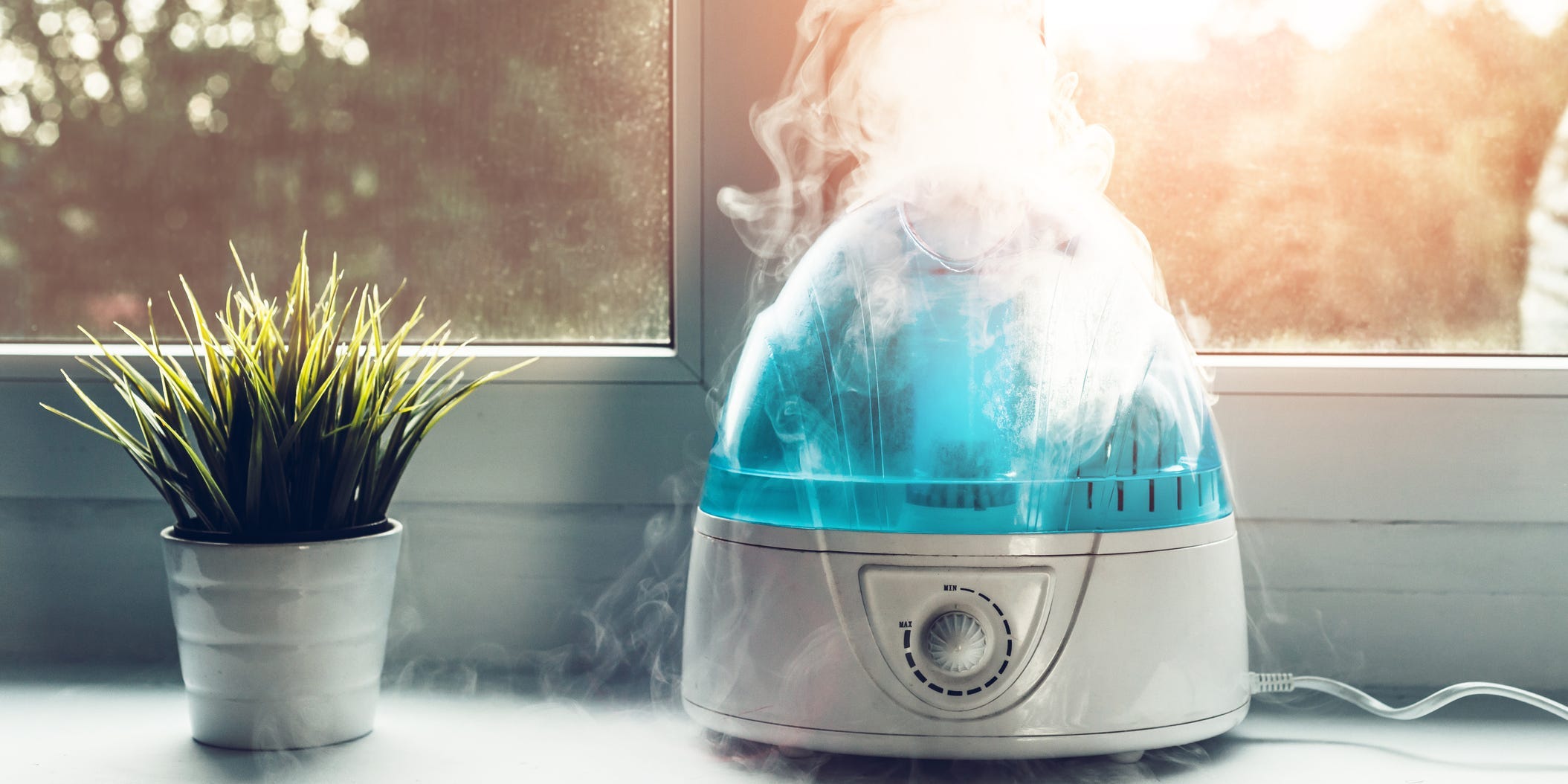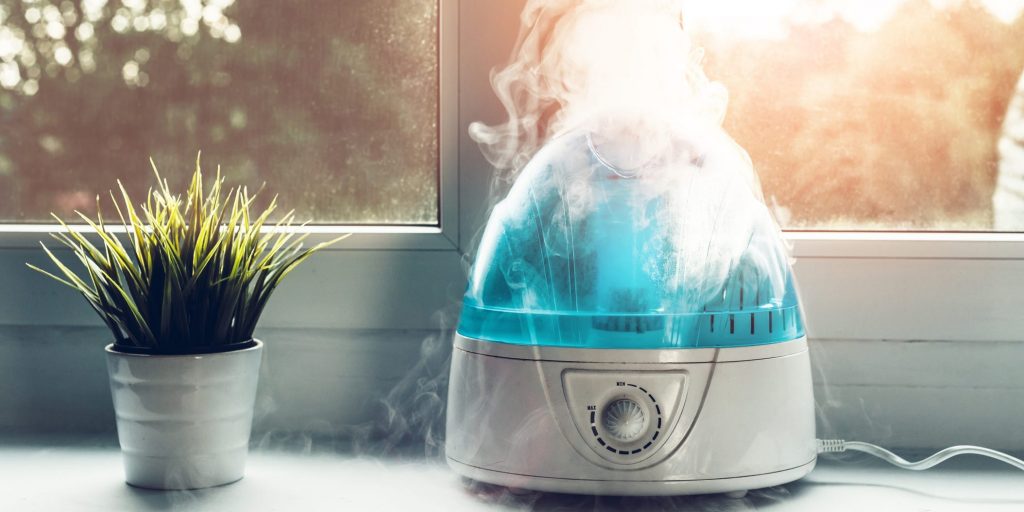
Sebastian Gorczowski/Getty Images
- Clean and disinfect your humidifier weekly to avoid mold and mineral build-up.
- Cleaning a humidifier is easier than you think – all you need are water, vinegar, and a scrub brush.
- Visit Insider's homepage for more stories.
Humidifiers can ease problems caused by uncomfortably dry air in your home, soothe respiratory or cold symptoms, increase the humidity for your houseplants, and benefit people with extremely dry skin. This is why it's just as important to know how to clean and disinfect your humidifier so it doesn't become a health hazard.
If your humidifier is dirty, the breathable vapor it emits will be dirty as well.
Angelynn Sonz, a content creator who specializes in DIY home projects and remodels, and Kait Schulhof, founder of A Clean Bee, both use humidifiers to keep the air quality healthy for their family. The two shared their best tips for making sure that you're staying up-to-date when it comes to cleaning your humidifier and tips to avoid mold.
How often should you clean a humidifier?
It's recommended that you clean your humidifier at least once a week, especially if you use it often. Sonz uses humidifiers around her home for a good part of the day, every day, so she cleans and disinfects them weekly.
She adds, "I used to hate the process of cleaning my humidifiers, but once you think about all the nasty stuff you might be breathing in, it becomes easier to be diligent about cleaning them."
Besides weekly cleanings, it's important to refresh your humidifier's water every day. Implementing these daily and weekly routines is necessary to prevent mold and limescale build-up (too much limescale can shorten the lifespan of your humidifier).
How to prevent mold in a humidifier
Humidifiers, just like other wet surfaces, are prone to grow mold if they aren't cleaned regularly and thoroughly. "If mold is growing in your humidifier, think of what's in the mist that it's blowing," Sonz says.
Mold can develop into harmful bacteria which can cause serious respiratory illness in humans. Since most people use humidifiers for health and wellness purposes, "using a moldy humidifier will likely do the exact opposite. This is why it's imperative to diligently clean humidifiers every week," Schulhof adds.
And if you use a humidifier for your houseplants, the presence of mold can lead to fungal disease.
The white vinegar you use to clean your humidifier, however, is great at preventing mold as it is naturally antibacterial and antimicrobial.
Additionally, adding a few drops of tea tree oil, using humidifier tablets, or adding a couple of drops of hydrogen peroxide in your humidifier's water tank can also help prevent mold. Tea tree oil and hydrogen peroxide both have antiviral, antifungal, and antibacterial properties.
Using distilled water instead of tap water can also help to prevent mold and limescale buildup.
How often should the filter be replaced?
This depends entirely on the conditions of your humidifier and how often you use it. On average, you should be replacing your humidifier's filter every 30 to 60 days.
If your humidifier's filter becomes increasingly crusty from mineral deposit build-up, gives off an odor, or if the moisture output of the humidifier decreases significantly, then it's time to replace your filter.
When should you replace a humidifier?
This also varies depending on your use and how often you clean and disinfect your humidifier. On average, your humidifier should last you a few years. Keep an eye on whether mineral build-up or mold becomes increasingly difficult to remove.
Insider's takeaway
Cleaning your humidifier is as simple as letting the parts soak in a solution of water and white vinegar and giving any mold or mineral buildup a scrub with a brush. To fully disinfect, replace the vinegar in the solution with a teaspoon of bleach.
Clean your humidifier once a week to ensure the vapor is free of harmful mold or bacteria. Cleaning it will also prevent mineral buildup which can shorten the life of your humidifier.
